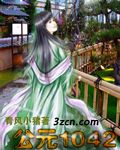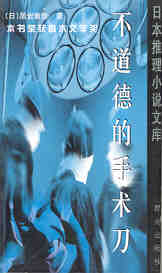04道德经英译本85种-第105部分
按键盘上方向键 ← 或 → 可快速上下翻页,按键盘上的 Enter 键可回到本书目录页,按键盘上方向键 ↑ 可回到本页顶部!
————未阅读完?加入书签已便下次继续阅读!
What made this dance of sound and silence?
If the Cosmic Consciousness thus ebbs and flows;
Why not we; the word…drunk wanderers of this world?
Therefore; the student of the Sage
Steps mindfully through his life:
He allows the Cosmic Voice
To speak through his actions;
And so he need not talk himself。
Modesty is the golden thread of the Cosmic tapestry。
It is the active mode of Nature:
The breath of bliss in life。
Modesty acts through renunciation:
It abandons identification。
In exploding the image;
It liberates the self。
In dropping comparison;
It inaugurates autonomy and lets loose joy。
As you learn; ask yourself:
揑s my life founded on mere faith;
Or rooted in the natural experience
Of my inner being??br》
24
Standing on tiptoe;
You are easily knocked off balance。
Striding forth in grim pursuit;
You make little progress。
To affect luminosity
Is to dull your natural light。
Dig in your heels;
And you will never endure。
Display yourself;
And you accomplish nothing。
For the mildest conceit reveals the ego…
The parasite of true nature;
A consumptive; gnawing burden…
It is disdained by the Sage。
Rejecting the ego; the Sage reveals
The quiet autonomy of true being。
This verse is about the inner and outer signs of that 〃parasite of true nature;〃 the ego。 Wherever a person is engaged in self…display; the striving after fame; or the ideological rigidity of position…taking; the ego is present。 〃Standing on tiptoe〃 can also refer to the attitude of the gossip…addict: a person who strives to be 〃in the know〃 or to have 〃inside information;〃 usually about matters that are properly none of his business。 In Lao Tzu's time; as in ours; the halls of government; workplaces; and the media were saturated with such idlers。 Perhaps in no other arena is the petty inanity of the hunger for superiority exposed; as the poet also mentions in Chapter 20。
Apart from its outward marks; the ego can be detected inwardly as well: it is 〃a consumptive; gnawing burden;〃 one that can; the poet suggests; be felt physically; from within one's organic nature。 Once the student discovers the signs of ego and can learn to recognize them within himself and in others; he can begin the practice of diminishment梩he process of deconstructing the ego's false beliefs and artificial hierarchies。
25
There is something whole and formless;
That existed before any universe was born。
It makes no sound;
Has no substance;
Can抰 be fixed in time or space…
It is inexhaustible; unchanging; perduring:
It is the uterus of being;
And I call it Tao;
Just so it has a home in my mind。
It may also be called the great;
Since all beings arise from it;
And it is the home to which they return。
Nature is great;
The sky is great;
The earth is great;
Even humans can be great。
These four great presences
Are not to be separated…
They work correctly only as One。
Humans: honor the earth…
As the earth loves its sky;
As the sky reflects its Tao;
And as the Tao moves in harmony
With its own eternal Consciousness。
It should be clear to the reader by now that Lao Tzu is not a religious man: not in the sense of adhering to an ideology of faith。 His teaching is of a simple yet surpassing naturalism; based on inner experience rather than on belief; doctrine; or some holy writ。 Yet here; he has written a kind of hymn to the Cosmos; a beautiful plainsong to honor the Inexpressible。 As he does elsewhere in the Tao Te Ching; he resorts to feminine metaphor to describe the nature of Tao; calling it 〃the uterus of being。〃
This poem is a celebration in verse of a deeply moving inner experience; the gratitude of the writer can be felt; reaching out of the page and toward its Cosmic Origin。 Readers familiar with the work of Walt Whitman may find this mood of lyric celebration particularly resonant with that poet's 〃Song of Myself。〃
26
True darkness seems to be light;
Indeed; it is the origin of light。
The enduring tranquility
May appear to be agitated:
For it is the apogee of agitation。
Thus wandering all the livelong day;
The student of the Sage
Stays as still as can be…
Unmoved by the attraction of glory;
Or the titillation of diversion。
Even stopping amid the feast;
His independence is unshakeable。
Could this be said of the political insider;
Who so lightly drops his dignity
For every passing pleasure?
Airy lightness lacks foundation;
Fitful action loses the center。
One in contact with his inner truth is able to abide in darkness; as still as a moonless night; and yet remain in motion。 For he understands that movement which comes from the clear and centered point of inner balance is often seen as stillness; and that his most pure and silent state of rest may appear to be a whirlwind of activity。 The former state is often seen in the creative artist; the latter; in the athlete。 But he is not concerned with appearances or with the perceptions of others; for he is content in his own self…awareness。 If there is pleasure to be had; he takes it gratefully and without selling his dignity for its superficial luster。 For he knows that should he allow his inner independence to be purchased for a favor or a privilege; then he will have sacrificed the central and stable point of his connection to the Cosmic Whole。
27
Treading correctly; we leave no trace。
Correct speech is brief and true。
Correct assessment is ever open…
Calculation does not further it。
The true…fitting door is shut fast
Without need of bar or latch…
Yet none can break its seal;
Or cross its threshold。
The best knots tie firmly;
Yet without binding: such connections
Can never be broken from outside。
Thus the eternal Sage
Acts with abiding care for all。
Because of this; it abandons no one:
Its regenerative Presence flows
Through every particle of being。
This is called the penetrating awareness。
Thus the Sage approaches those who lack fulfillment:
For those who lack fulfillment sustain the Cosmic teachings:
The Teacher and student unite in what is learned。
Accept this fully…for if you fail…
Success will forever elude you;
However great your erudition。
This is why I call this
The heart of my teaching。
This is a distinctive chapter in the Tao Te Ching for several reasons。 It begins with a beautifully lucid set of metaphors on speech and action that are in harmony with Tao。
Lao Tzu follows these with an image of a 〃true…fitting door〃 which can close securely 〃without need of bar or latch。〃 In the I Ching; the first line of Hexagram 60; Limitation; speaks of 〃not going out of the door〃 as a metaphor on the true self's ability to separate itself from the distorting beliefs and restrictive rules of the collective ego。 In both of these texts; the point being made is that it is not a matter of fleeing from; or contending against; the repressive power of group ideology; but rather of simply having a proper inner seal on the doorway of consciousness; so that the vapid abstractions and insinuations of ego can find no entry point to one's true self。
In the second half of the poem; Lao Tzu considers the source of help available to people who would like to live; work; and form relationships from a stable; open center of being: the Cosmic Sage梩he teaching energy of the universe。 The Sage is available to all who ask for its help; it is a regenerative presence that can awaken and further understanding and awareness; because it works with the student; and not from above him。 When we accept the help of the Sage in living a human life; we are guided toward fulfillment。 This is why Lao Tzu declares that this is 〃the heart of my teaching。〃
28
Acknowledge the masculine
And be one with the feminine:
Let the river of your being flow
Into the valley of eternal Nature。
The path of Modesty is true and complete:
Ever returning to the origin;
As a child returns to its mother。
Acknowledge the white;
But trust in the black:
Let Nature be the mold
Into which you pour
The liquid energy of your being。
Let Modesty guide you;
Perseveringly return to the Source
Of limitless serenity。
Be aware of your influence;
Yet act from humility:
Let your action be drawn from
The valley抯 fertile depths;
And Modesty will be furthered。
Returning to your perfect nature;
You may be shaped and arrayed…
Honed to a sparse and simple beauty。
Thus do the Sage and the Cosmic Helpers
Create completion and fulfillment…
Not through division and reduction…
But through transformation。
For me; the central metaphor of this poem is the feminine principle that Lao Tzu weaves throughout the Tao Te Ching。 I don抰 know whether Lao Tzu would identify himself as a feminist; but I suspect that he抎 rather have nothing to do with ?ism抯 of any sort。 In any event; this is not a poem about women; but about the feminine。 Science teaches us that estrogen (the female hormone) is as essential to men as testosterone (the male hormone) is to women。 No surprise here: science; at its best; discovers the same truths that poetry delivers梛ust in a slightly different language。
As a teacher and poet; feminine images mean something to Lao Tzu: the valley may be thought of as a symbol of the source; or origin; of being梩he place where conception and birth occur。 Water also has feminine associations: it is the home…element of the developing fetus; and it is the nourishing; life…giving substance which makes up the great majority of both our planet and our physical bodies。 These simple facts point to an equally simple reality: no matter your outer gender or sexual orientation; there is a feminine principle within you; which needs to be discovered and experienced。 When it is repressed





